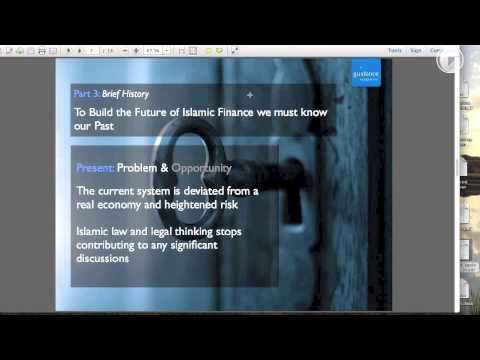Millennial Home Lending: What to Know

When it comes to home buying, millennials are taking the real estate market by storm. According to a report by the National Association of Realtors, millennials account for 43% of homebuyers in the U.S.—the largest generational share.
For these new home buyers entering the housing market, understanding home financing is crucial for future financial health.
>> Related Read: First-Time Home Buying 101
Mortgages for Millennial Homebuyers: 6 Tips
Getting a mortgage can be a daunting task, especially for millennial first-time homebuyers. The following tips can help make the home financing process more manageable:
1. Assess Your Expenses
Before you start shopping for a home, evaluate your finances carefully to determine if you can afford to make a monthly mortgage payment. This requires taking a deep dive into any recurring expenses or existing debt related to your vehicle(s), education, and lifestyle.
Potential home buyers who have substantial debt will typically need to pay down some of that debt before applying for a mortgage. The more debt you have, the higher your debt-to-income (DTI) ratio. This ratio affects your credit rating — and if your credit rating is low, your chances of getting approved for a mortgage are slim. A low credit rating also can increase your interest or home financing rate
In addition to assessing your expenses, it’s important to avoid adding to them. Do not make any substantial new purchases in the months before you apply for a mortgage. Substantial purchases like a car or even a Peloton® bike can increase your DTI ratio.
2. Improve Your Credit Rating
Maybe you have a stellar credit rating, but if you’re part of the 46% of millennials who feel held back by low credit scores, read on.
Paying down debt is one way to boost your credit rating. Even if you can’t pay off your balances in full, focus on making your payments on time. It may be helpful to set up automatic payments, so there’s no chance of missing due dates or grace period deadlines.
>> Related Read: Could Mortgage Pre-Approval Hurt Your Credit Score?
Other important actions to take include the following:
- Pay off any bills sent to collection agencies
- Refrain from applying for new credit cards or other financing, as this results in hard credit inquiries, also known as hard pulls or hard credit checks, which show up on your credit report and can affect your credit score
- Avoid closing out your oldest line of credit, since this can decrease the length of your credit history and negatively impact your credit rating
Remember that it takes time to improve a credit score, so start this process as soon as possible.
3. Save Up More Than You Need
One of the largest costs involved with buying a home is your initial investment or down payment. But there are many other expenses you will also face. Saving up more funds than you think you need will help ensure you’re finally prepared.
While a 20% down payment is a popular benchmark, some mortgage products—like FHA and VA home loans—allow homebuyers to put less money down. Just keep in mind that the more you put down, the lower your monthly mortgage payments will be. In addition, if you put down less than 20% with a conventional mortgage, you may need to pay for private mortgage insurance, which increases your monthly payments.
Don’t forget about other expenses, like inspection costs, closing costs, taxes, insurance premiums, and moving expenses. Consider starting a separate account that you use just for your home buying savings. Contribute a percentage of each paycheck to the account and don’t touch it until it’s time to purchase your house. The more money you are able to save up, the better you’ll be able to navigate any unexpected expenses that may arise during the process.
>> Related Read: What Fees Do Closing Costs Include?
4. Find a Trustworthy Home Financing Partner
Your home financier is your partner in the home buying experience, and you need to have a partner you can trust. You should feel comfortable asking questions, and your financier should be comfortable answering those questions promptly, accurately, and thoroughly. It’s also important for your home financing partner to openly discuss all your options with you, so you can make a well-informed decision when it comes to your mortgage.
5. Get Pre-Approved Before You Start Shopping for a Home
During the mortgage pre-approval process, your home financing partner will gather information about your income, employment, and credit history. Most financiers will also do a hard credit inquiry to pre-approve you for a mortgage up to a particular amount. Use that pre-approval amount to steer your home search towards properties within your means.
>> Check Out This Checklist of Information Typically Required for Home Financing
The importance of a pre-approval letter cannot be overstated. It demonstrates to real estate agents and sellers alike that you are serious about buying a home.
6. Consider Islamic Home Finance
America is increasingly recognizing the fact that millennials tend to hold strong values—and live by them. Millennials today are a deeply value-driven group who believe in the power of activism. And they are making a difference.
According to a 10-year study, millennials are not only the most diverse generation, but they also want to change the world. In fact, they are not just making a change: they’re changing how change is made.
>> Related Read: 5 Reasons Why Millennials Should Buy a Home
Millennials care deeply about a range of causes, with top priorities including civil rights and debt relief. What’s more, they take action to support their values, because they believe their actions can impact the world. And they don’t wait for an opportunity to make a change on a large scale—they consider the impacts of even small everyday actions like their purchasing habits.
Those actions in recent years have begun to include where and how they spend their money. 42% of millennials in this study reported that they are more likely to buy from companies that support causes they care about. Millennials are conscientious consumers.
Here are some of the Islamic home finance appeals to socially conscious millennials.
Support Social Justice
Younger generations are increasingly more aware and less tolerant of exploitation and inequitable power arrangements. Conventional mortgages are highly inequitable, with large banks empowered to extract profit from customers coming to them in a state of need. Even worse, some of those policies — such as percentage-based late fees—punish borrowers right when times are growing increasingly difficult.
Conversely, an Islamic mortgage provides a more equitable agreement right from the start. Rather than the lender/borrower homeownership arrangement of a conventional mortgage, Guidance Residential’s customers are co-owners with the company. This creates unique benefits for the home buyer, such as risk sharing. Even just the term “co-ownership” denotes the respect that underlies this relationship.
>> Related Read: What Is an Islamic Mortgage and How Does It Work?
To delve in more deeply, interest is forbidden in Islam in part because it punishes a person who is already in need and possibly in a difficult situation. A loan is seen as a noble act, not a business model—it’s a way for one person to help another without gaining anything in return. Using a loan to profit from the person in need is anything but noble.
Islamic financial principles protect both the community and the individual, limiting the excessive accumulation of wealth by the most powerful in the society. This can help prevent situations like the 2008 financial crisis in the American home financing industry, which resulted from unjust financial practices. Islamic financial principles, such as the requirement for asset backed financing, prohibit the kinds of speculative, unfair practices that were prevalent in the housing market at the time.
This equitable, socially just approach has been used by Guidance Residential since 2002 to provide more than $10 billion in financing to more than 40,000 families who were enabled to fulfill their homeownership dreams and needs in accordance with their ethics and values.
Limit Your Debt
Millennials are considerably less attracted to debt than the preceding generations, and a mortgage is the largest debt most Americans take on. Islamic home finance offers an alternative that is an investment rather than a loan, thus limiting debt.
For example, Guidance Residential’s model of Islamic home finance is based on the principle of diminishing musharakah. Musharakah, which means “sharing” in Arabic, denotes the fact that the two parties invest in a property together. The homeowner enjoys full usage rights of the entire property, paying a usage fee for the company’s portion while gradually buying out the company’s stake. This model aligns more closely with many home buyers’ preferences to limit debt rather than take on a large loan.
Lower Your Stress
Many young adults suffer from high DTI ratios due to credit card and student loans. Buying a home with a conventional mortgage adds stress by increasing that loan burden. Buying a home with Guidance Residential’s Declining Balance Co-Ownership Program does not.
>> Related Read: The Guidance Difference
Avoid the Hidden Risks of a Conventional Loan
The hidden risks of a conventional mortgage loan highlight inequities that are anathema to the socially conscious.
All the risks of a traditional mortgage fall on the homeowner. If you can no longer make your payments and your home goes into foreclosure, you are responsible for the full loan amount, regardless of whether the sale of your home can cover the cost. In addition, banks will sometimes pursue unlucky borrowers’ personal assets to make up the difference.
In an Islamic co-ownership mortgage, on the other hand, the financier is prohibited by Islamic finance principles from taking anything more than the asset in question. In other words, the home will be sold, but the home financing company does not pursue any other assets to cover a loss.
Note that while the home financing company would take a loss in that foreclosure scenario, all profits from a normal sale belong to the homeowner alone. Thus, with Islamic home finance, the owner is protected in both the best- and worst-case scenarios.
Similarly, with a conventional mortgage, in the case of natural disaster or eminent domain (which is when the government seizes part or all of private property for public use), any loss is yours to bear alone. In comparison, with an Islamic co-ownership mortgage (like the program offered by Guidance Residential), the homeowner is protected through risk sharing.
The benefits that go along with Islamic financial products are most evident in situations when things don’t go according to plan. When you are struggling, that is when Islamic finance principles protect you the most.
>> Related Read: Islamic Home Buying Questions and Answers
Invest in Your Values
Faith and finance can go together. In all three Abrahamic faiths (Judaism, Christianity, and Islam), charging usury or interest is a prohibited act. The principles of Islamic finance are clear: interest is not permitted, especially when there is an interest-free alternative.
With Guidance Residential’s home financing program—developed under the supervision of leading scholars of Islamic finance and with leading financial institutions like Freddie Mac—faithful communities who deeply care about their religion can exercise their rights to homeownership without compromising their values.
Unlike earlier generations who did not have Islamic home financing options, home buyers today don’t have to make a choice between their values and their homeownership aspirations. An authentic interest-free home financing alternative is widely available.
The co-ownership relationship pioneered by Guidance Residential’s home financing program is a more equitable option. For that reason, it appeals to many American homebuyers regardless of faith.
Islamic financial principles foster the distribution of wealth throughout communities, while financial equity uplifts families and society at large. At Guidance Residential, our mission is to provide that equitable solution in the American home finance industry. It’s a mission that more home buyers find appealing every day.
Learn more about Islamic Home Financing:
- What Is an Islamic Mortgage and How Does It Work?
- Hidden Risks: The Pros and Cons of a Conventional Loan
- Are Guidance Residential Islamic home mortgages really halal?
Ready to Get Started?
Buying a home is one of the most important decisions you will make. The team at Guidance Residential is here for you, from the first step of pre-qualification or pre-approval, on through to finding the right real estate professional for you and your family — or refinancing a home you already own. We invite you to explore the home buying process with Guidance Residential today. You can also instantly calculate an estimate specific to your personal situation with our finance calculators online.
Guidance Residential remains the #1 U.S. Islamic home financing provider, with more than 40,000 families assisted over more than 20 years. Learn more about our co-ownership model of Islamic home financing, and get started on your home finance journey today.
Your Guidance Residential Account Executive is here to help with any questions. Looking to refinance or purchase? Have a friend or family member who is looking for a home? Call 1.866.Guidance, or start an application today.
Originally published February 2020, updated November 2024.




